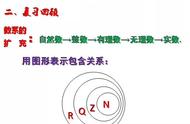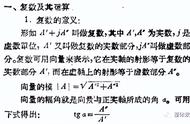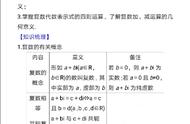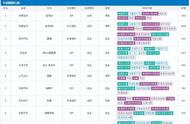Module1 Routines and Dates 学习重点
1、掌握一月到十二月、四季的名称
2、用英语说出日期 日期的表示法有两种,如:“今天10月20日。”
先说月份:Today is October the twentieth (20th)
先说日期:Today is the twentieth of October(20th)
掌握节日的名称及日期。
例如: New Year's Day( January 1st ) Women's Day( March 8th)
4、能用英语说出学期的开始和结束 The autumn term begins in September and ends in January.
5. 掌握基数词和序数词,注意区分和运用 重点掌握:first,second,third,fifth,ninth,twelfth,twentieth. 基数词表示数量:three pandas三只熊猫。 序数词表示顺序:the second month第二个月
6、注意表示时间频率的词:never、sometimes、often、usually、always,注意这些词在句子中的位置——除了“是”动词以外,他们都放在在动词的前面,如: (1)She often comes here . (2)She is always late .
7、能用英语谈论日常的活动(能写一篇小作文)
8、掌握时态:一般现在时的使用: (1)定义:一般现在时表示已形成习惯、规律的动作或状态。 (2)特征:通常句子中有often、usually、或sometimes等等。 (3)肯定句的结构: 人称 动词:
①其他人称(I、you、we、they、the boys……) 动词原形
②第三人称单数(he、she、it、Tom、……) 动词“s/es”形式 例句:The boys like TV plays. Sally likes TV plays.
(4)一般疑问句:助动词(Do/Does) 人称 动词原形 Do the boys like TV plays? Does the boy like TV plays?
(5)否定句:人称 助动词否定形词(don’t/doesn’t) 动词原形 The boys don’t like TV plays. The boy doesn’t like TV plays.
(6)记住:助动词一出,后面动词用原形。
Module2 Abilities 学习重点
1、能用英语谈论人或动物的能力(能干什么) I can speak English. The monkey can climb trees. 2、能用英语说出15种以上的动物名称。 3、句子有“can”的时候,无论人称是谁,一般现在时的动词在肯定句,否定句或一般疑问句一律用原形,如: I/You/He/They/My mother can sing. Can you/he/they/my mother sing? I/You/He/They/My mother can’t sing. 4、注意“everyone”作为单数用: Everyone is here. Everyone likes flowers. 5、注意“not…at all”的使用: He can’t skate at all .=He can not skate at all. He doesn’t like it at all .=He does not like it at all.
Module 3 Plants 学习重点 1、能用英语说出一些植物(花,树木)的名称,并能写出十个以上有关植物的单词,并写上中文。 2、注意must和mustn’t的使用 (1)must必须 mustn’t禁止、不允许 (2)must/ mustn’t后面的动词用原形, 例如:I must go我必须走了 。We mustn’t pick flowers in the park. 我们不能在公园里在摘花。 3、掌握Can开头表示请求的句子的回答。 如:---Can I go with you? ---Sure./ Of course you can.
Module4 Travel 学习重点
1、 能说出十种以上的日常交通工具,并写上中文。
2、注意使用交通工具的表示方法。 by(乘坐):by bus/by train/by spaceship 等, on foot(步行、走路)
3、时间的表达方有两种,
一种是直接表达法,直接按照“小时 分钟”的顺序读出时间,7:15-seven fifteen 7:30-seven thirty
第二种是逆读法,基本按照“分钟 小时”顺序读出时间,如: ①用past(在半小时之内,包括半小时),如: 7:10-ten past seven 6:15-a quarter past six 9:25-twenty five past nine ②半小时用half past, 如: 7:30-half past seven ③用to(超过半小时).读作“相差的分钟 to 下一个小时”,如: 7:45-a quarter to eight
4、介词的使用in、on、at在时间前的用法. at-具体几点钟,如: at five o'clock (习惯用法:at the weekend) on-具体某一天,星期、日期前用,如: on Sunday,on May 1st, on weekdays in-早上、下午、晚上, 如:in the morning /in the afternoon /in the evening in-年份、月份、季节前使用,如:in November月份 in winter季节 in 2005年份 5. 掌握时态:一般将来时态:表示将要发生的事情. 1)…be ( is \ am \are ) going to…动词原形. 例如 :表示某人将要去游泳 I am going to swim. You are going to swim. She is going to swim. 2)…Will … 动词原形. 例如 :表示某人将要去游泳 I will swim. You will swim. She will swim.
Module 5 Zoo Animals 学习重点 1、能用英语说出十五种以上动物的名称,并写上中文。 2、能用英语说出一些地方(如各大洲)的名称,并知道它们的位置。 3、当我们想要提出请求或征询意见的时候,我们可以用“Would you like to 动词原形”的结构 Would you like to go shopping with me? Would you like to water the flowers? Would you like to have lunch with my family? 回答:Yes, I’d love to./ Yes, of course.
当你看到不良行为时,能用英语进行规劝,请写出5个以上。(详见书本61页和90页)
例如:Don't kill us. Don't wake up a lion.
Module 6 Directions 学习重点
1、能用英语说出一些公共建筑物和学校建筑的名称。
2、能用英语问路,如: 1)Where is the canteen, please? 2)Could you tell me the way to the canteen, please? 3)Could you tell me how to get to the canteen, please? 4)How do I get to the canteen, please? 5)Is the canteen near here? 6)Is the zoo on the right or on the left? 3、能用英语回答某地的位置,并记住以下的一些表达方式: turn right out of the hotel 在宾馆外面 on the left / right 在左边 / 在右边 turn left / right 转左 / 转右 go straight ahead 一直往前走 take the second left 在第二个拐弯处左拐 take a No.216 bus 乘坐216号公共汽车 4、注意询问别人或道谢的礼貌用语,如:
Thank you very much./ Thanks a lot.
两句都可以回答:You’re welcome./ Not at all. (2) Excuse me. (用于打扰别人的时候。)

五年级第一学期英语语法资料
一 、名词复数的构成方法: 1.一般直接在词尾加上“ s” (book—books) 2.以x. s .ch .sh结尾的直接加上 “es” (box—boxes , dress—dresses) 3.单.复数同形: fish , sheep . 4.大多数以f(fe)结尾的,变f(fe)为v再加上“ es”.(knife—knives shelf—shelves) 5.以y结尾的,y前是元音字母的直接加上“s”(boy—boys ); y前是辅音字母的变y为i再加上“es”(factory—factories) 不规则的复数: 1.child—children 2.this—these 3.that—those 4.goose—geese 5.foot—feet 6.tooth—teeth 7.my—our 8.it/he/she—they 9.his/her/its—their 10.a/an—some/any 11.has—have 12.man—men 13.woman—women 14.policeman—policemen 15.I—we
二、动词第三人称单数的变化方法
1.一般直接在词尾加上 s
2.以x ,s,ch ,sh结尾的直接在词尾加上 es
3.以y结尾的,y前是元音字母的直接加上 s; y前是辅音字母的变y为i再加上es
4.go—goes do—does have—has are—is
三、 动词加ing的方法:
1.一般直接在词尾加上ing ;
2.以不发音e结尾的,要去掉e再加上ing ;(除了see—seeing 之外 )
3.两个辅音字母中间只有一个元音字母的重读闭音节的,要双写末尾的辅音字母再加上ing .(skip—skipping swim—swimming run—running cut—cutting get—getting forget—forgetting shop—shopping begin—beginning )
四、变一般疑问句的方法:(some变为any,I/we变为you,my变为your,句号变为问号)
是(is .are ).情态动词(can \could \must \should \need)提前.
主语是(你you,我I,复数的)在句子开头加:Do.
主语是(第三人称单数的)在句子开头加:Does.
五、变否定句的方法: (some变为any)
在是(is \am\are) ,情态动词(can \could \must \should \need)后面加上: not.
主语是(你you,我I,复数的)在动词前面加上don’t.
主语是(第三人称单数的)在动词前面加上doesn’t.
六、对划线部分提问需要用到的特殊疑问词: what(什么): what time(什么时间)、 what colour(什么颜色) 、what day(星期几) what date(什么日期) 、what season(什么季节) who(谁) 、where(哪里) 、whose(谁的) 、which(哪一个) how(怎么样) : how many(多少)、how old(几岁)、 how often(多经常) 、how much(多少钱)
七、不规则的序数词: 1.one—first 2.two—second 3.three—third 4.five—fifth 5.eight—eighth 6.nine—ninth 7.twelve—twelfth 8.twenty—twentieth
八、句型:
1. How are you ? I’m fine ,thank you . 2.How old are you ? I’m twelve. 3.How many people are there in your family ? There are four . 4.How many terms are there in your school year? There are two . 5.Would you like to . ? Yes ,that would be fun . /No,thanks . 6.Whats the date today? Its November (the) 22nd . 7.Where are you going on holiday? Im going to Hong Kong . 8.What are you going to do on your holiday? Im going to go shopping/ Hong Kong . 9.How are you going to get there? By plane / car/ bus/ bike/ train.
,











